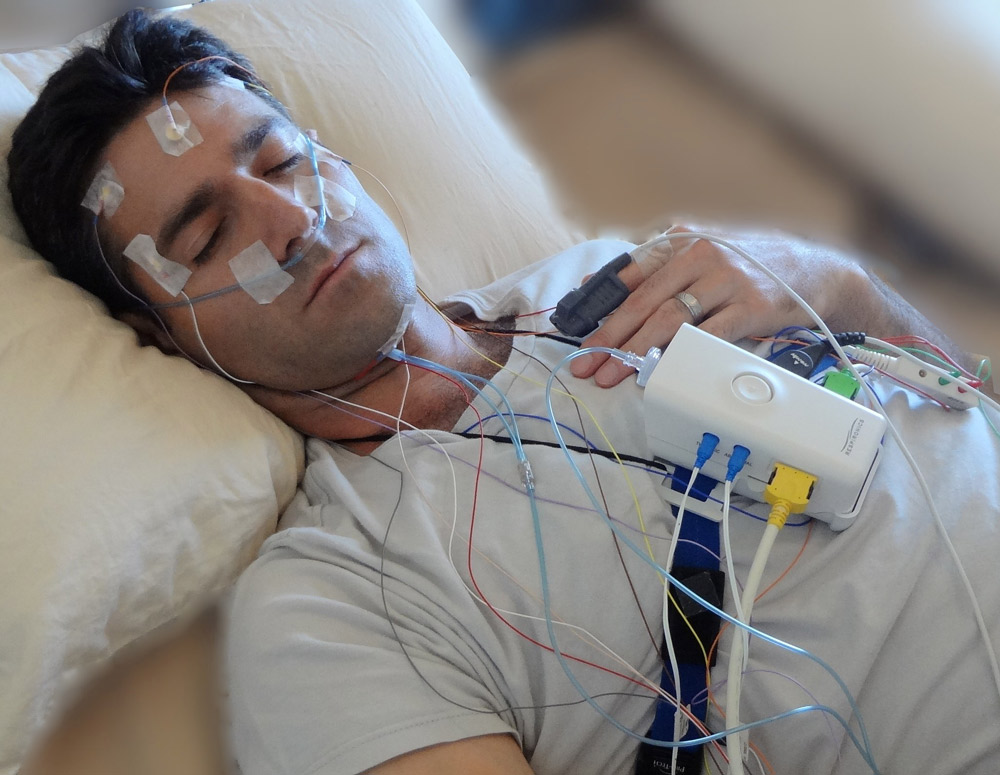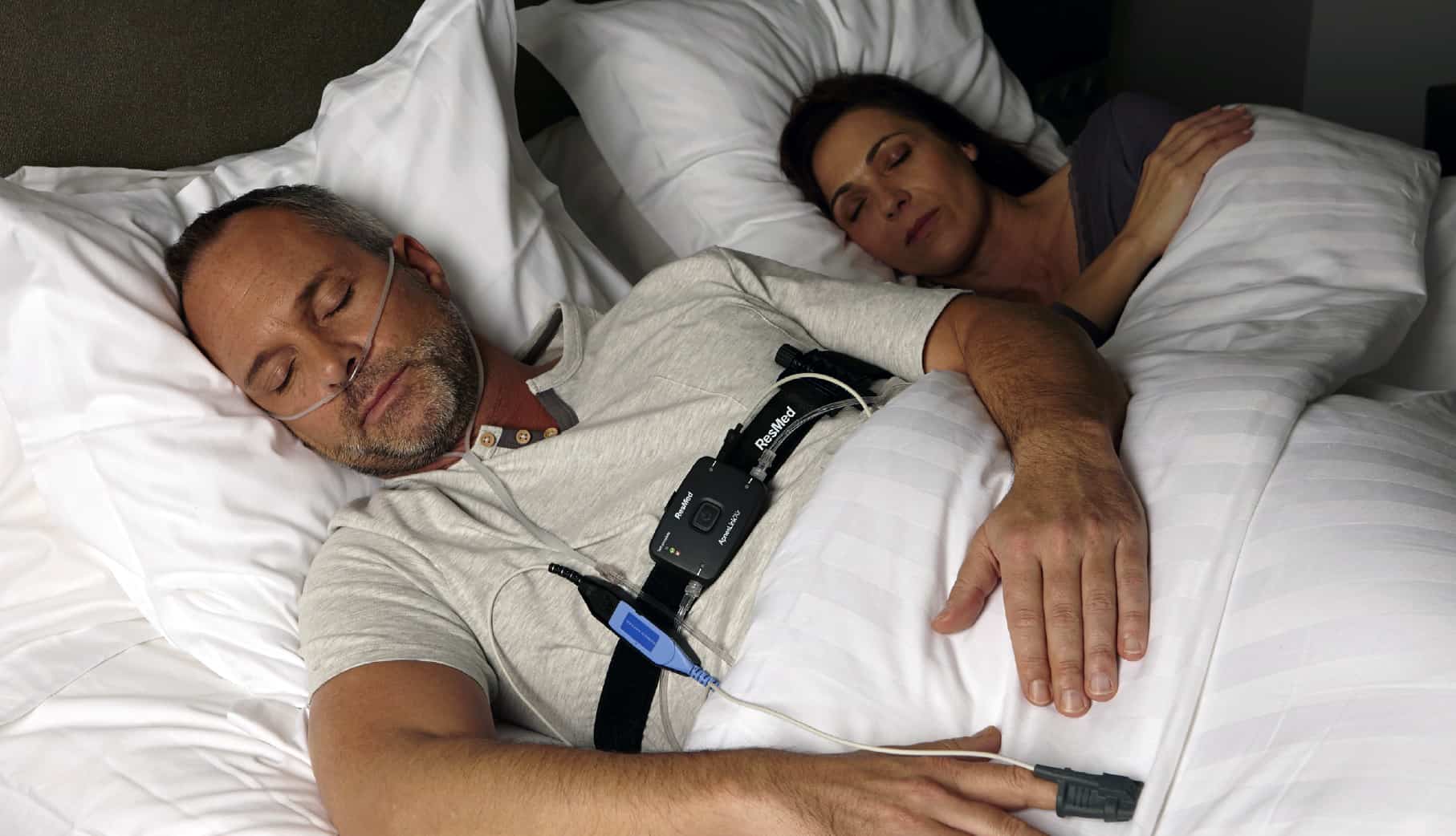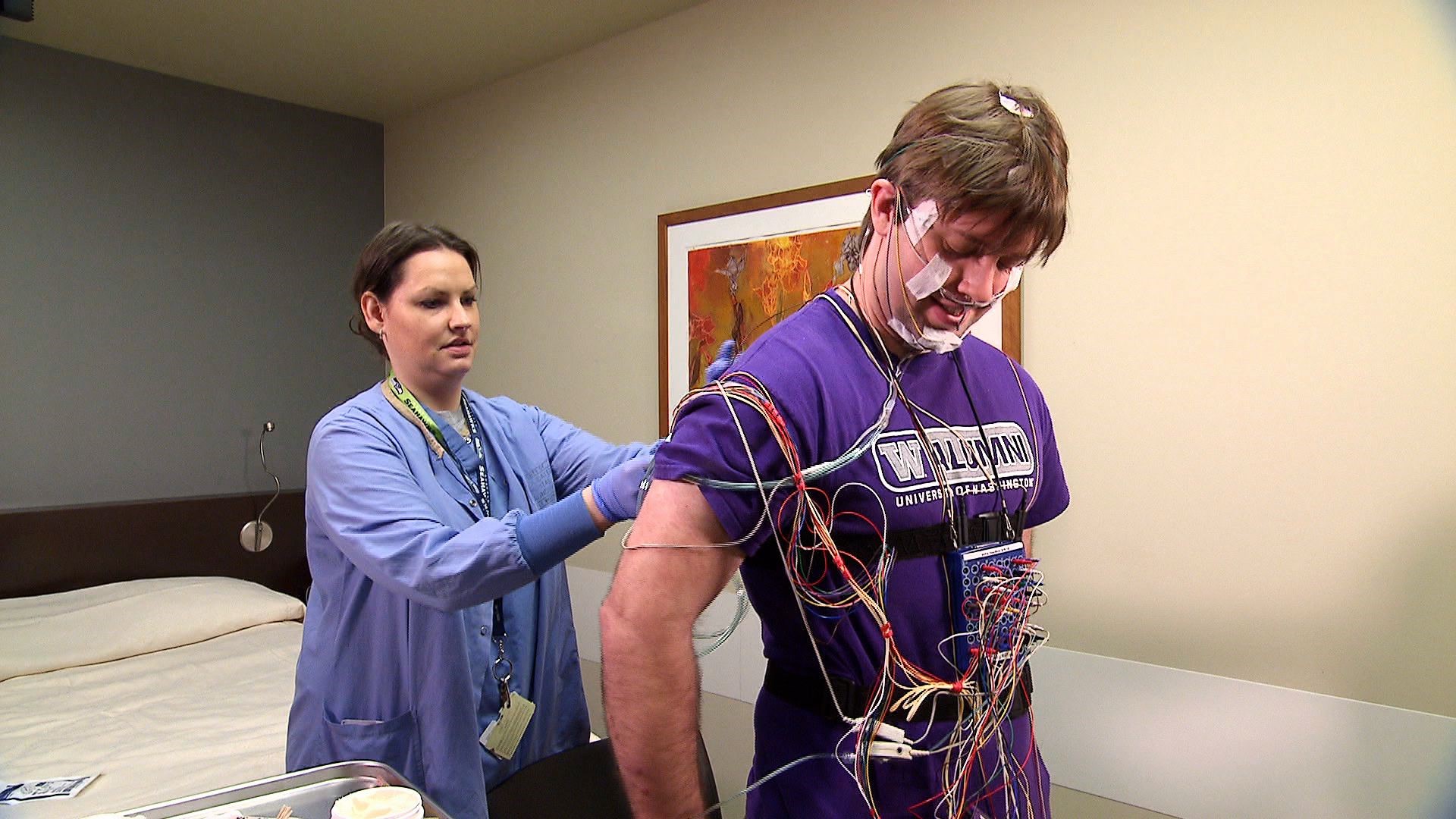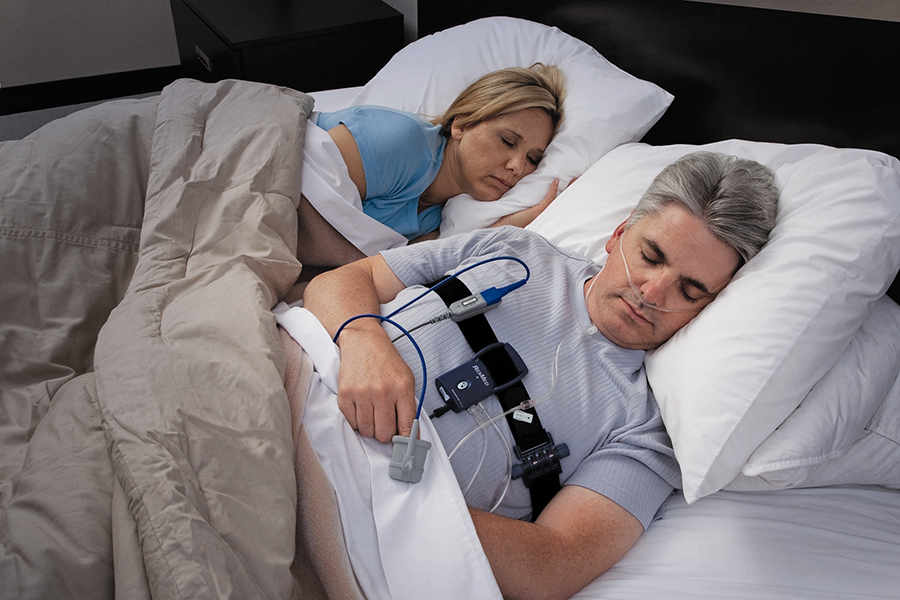What is an In-Lab Sleep Study?
An In-Lab Sleep Study is a non-invasive, clinician-administered medical test for various sleep disorders including Sleep Apnea, Narcolepsy, Periodic Limb Movement Disorder, and Circadian Shift Work Disorder. In-Lab Sleep Studies (also known as Polysomnograms) usually use twenty-five (25) sensors taped or attached to the body from the top of your head down to your legs. Movement and sleep position is restricted by the 25 sensors. Testing is performed in a dark, single-patient room in the sleep clinic where your sleep is monitored by a licensed clinician with video and audio monitoring. Compared to a Home Sleep Study’s three (3) sensors, an In-Lab Sleep Study can be more difficult for patients to sleep with and tolerate.
An In-Lab Sleep Study measures:
Brain waves and frequencies
Chin muscle activity
Eye movements
Heart rate and rhythm
Breathing pattern and disruptions (both nasal and oral)
Snoring frequency
Oxygen saturation levels
Leg movements during sleep
Body position during sleep
Audio and Video observation of you during sleep by a sleep lab clinician
In-lab sleep studies are increasingly less common and only done in certain pre-qualified cases that involve rarer neurological disorders like epilepsy and narcolepsy. Polysomnography must satisfy the insurance carrier's own medical policy for coverage consideration. Most insurance medical policies contain coverage rationale that require home sleep testing for evaluating adults with suspected sleep disordered breathing or obstructive sleep apnea. The vast majority of health plans strictly limit coverage for attended polysomnography (sleep studies performed in the sleep lab). Patients seeking an in-lab sleep study should first verify if their health insurance plan limits coverage via it's medical policy rationale, conditions or limitations. Insurance health plans that contain conditions limiting coverage may require or result in your having to pay out of pocket for an attended polysomnogram sleep study at the sleep lab. The out-of-pocket expense for full-contact sleep studies performed in the sleep lab is double the cost as compared to the cost of safe, no-contact home sleep testing.
SleepSomatics is celebrating 20 years serving Austin, providing top-rated sleep testing and treatment since 1999. SleepSomatics testing is accredited and validated by the American Academy of Sleep Medicine. We are also a licensed State of Texas Durable Medical Equipment provider and a certified Independent Diagnostic Testing Facility for the Centers for Medicare Services.
ANSWERS TO IN-LAB SLEEP STUDY FREQUENTLY ASKED QUESTIONS:
Are needles used in an In-Lab Sleep Study?
No. No needles are used at SleepSomatics for sleep testing.
Is In-Lab Sleep Testing covered by health insurance?
All health insurance policies have different coverage and restrictions. Increasingly, more health insurances (such as United Healthcare, Humana, Aetna, Cigna, and Blue Cross Blue Shield) are opting for Home Sleep Testing for their patients with suspected sleep apnea. You may contact your health insurance policy’s customer service to inquire about specific questions.
Do I need a physician referral/order for in-clinic sleep testing?
Yes, you need a physician order for in-clinic sleep testing if you choose to use your health insurance or choose to work with an American Academy of Sleep Medicine accredited sleep disorders center.
How long is an In-Clinic Sleep Study?
An In-Clinic Sleep Study (or Polysomnogram) is usually covered for six (6) hours of evaluation. If you usually sleep longer, consider a Home Sleep Study, which allows you to sleep longer and to your normal sleep schedule and environment.
What if I don’t fall sleep during my In-Lab Sleep Study?
Health insurance policies increasingly do not cover repeat In-Lab Sleep Testing for patients who sleep poorly. In fact, light sleepers or insomnia patients are not generally recommended for In-Lab Sleep Testing (Polysomnography). Talk to your physician or provider about a three (3) night Home Sleep Study.
Can I take a sleep aide during my test?
You should maintain your normal routine (including prescription and over-the-counter medication usage). Changes to your normal routine may reduce testing validity.
What if alcohol / marijuana usage is my normal sleep or lifestyle routine?
Minor alcohol usage may be consumed in the evening if this is part of your normal sleep or lifestyle routine.
This is a medical diagnostic procedure. Intoxication is prohibited and may present safety risks or issues for patients who disregard these directions.
How do I fall asleep with 25 sensors attached to me and someone watching me on a camera in the dark?
An In-Lab Sleep Study (or Polysomnogram) is generally recommended for patients whose sleep disorder is so severe that sleep with excess sensors in a foreign environment is not prohibitive. If you are a lighter sleeper, consider a Home Sleep Study.
What does this device test / what are the sensors detecting?
Test for sleep-related breathing disorders including sleep apnea.
Evaluate behaviors during sleep such as periodic limb movement disorder.
Diagnose narcolepsy or hypersomnia with multiple sleep latency testing protocols.
May I sleep nude / partially-nude during testing?
For both male and female patients, please wear at least a t-shirt or pajama top and bottom to sleep with the device.
Can I drive myself to an In-Clinic Sleep Study?
Patients with excessive sleepiness, drowsiness or sleep attacks while driving, or history of automobile accidents should consider being dropped off and picked up by a family member, friend, taxi, or RideShare service to their In-Clinic Sleep Study.



